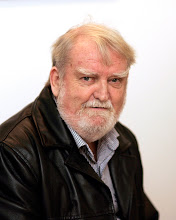I was out and about recently when a young chap said to me 'Hello old fellow.' Then, on another occasion, fiddling for my car keys in a local, not exactly upmarket shopping area two young men took hold of my shopping bags. Unannounced I might add, I thought for a second they were 'off' with my shopping; in fact they were trying to help as I appeared flustered and no doubt incapable. And both instances made me think.
car keys in a local, not exactly upmarket shopping area two young men took hold of my shopping bags. Unannounced I might add, I thought for a second they were 'off' with my shopping; in fact they were trying to help as I appeared flustered and no doubt incapable. And both instances made me think.
 car keys in a local, not exactly upmarket shopping area two young men took hold of my shopping bags. Unannounced I might add, I thought for a second they were 'off' with my shopping; in fact they were trying to help as I appeared flustered and no doubt incapable. And both instances made me think.
car keys in a local, not exactly upmarket shopping area two young men took hold of my shopping bags. Unannounced I might add, I thought for a second they were 'off' with my shopping; in fact they were trying to help as I appeared flustered and no doubt incapable. And both instances made me think.
Now my teeth are decrepit and my sights not what it was. My knees are on their way out, my running days are over and my hairs waving (goodbye). But I've never considered myself 'old' until these two events. And it got me wondering as to how OTHER people see us. As Robert Burns put it so vividly 'O wad some po'er gift tae gie us, ta see oursel's as aithers see us.' (I would to God the gift he'd give us, to see ourselves as others see us.)
We rush around, doing whatever. But occasionally we need to stand back and look at ourselves and ask, what do others REALLY see, what do they REALLY think? The same goes when we look at others, the same questions arise. The following might interest some of you; true or otherwise, it surely makes you think.
The Story of the Crabby Old Man
When an old man died in the geriatric ward of a nursing home in North Platte, Nebraska, USA, it was believed that he had nothing left of any value. Later, when the nurses were going through his meagre possessions, they found this poem. Its quality and content so impressed the staff that copies were made and distributed to every nurse in the hospital .
The old man's sole bequest to posterity is his poem and it has since appeared in the Christmas edition of the News Magazine of the St. Louis Association for Mental Health.
What do you see nurses? What do you see?
What are you thinking when you're looking at me?
A crabby old man, not very wise,
Uncertain of habit with faraway eyes?
Who dribbles his food and makes no reply
When you say in a loud voice, 'I do wish you'd try!'
Who seems not to notice the things that you do.
And forever is losing a sock or shoe?
Who, resisting or not, lets you do as you will,
With bathing and feeding, the long day to fill?
Is that what you're thinking? Is that what you see?
Then open your eyes, nurse - you're not looking at me.
I'll tell you who I am as I sit here so still,
As I do at your bidding, as I eat at your will.
I'm a small child of Ten with a father and mother,
Brothers and sisters who love one another.
A young boy of Sixteen with wings on his feet
Dreaming that soon now a lover he'll meet.
A groom soon at Twenty. My heart gives a leap.
Remembering, the vows that I promised to keep.
At Twenty-Five, now I have young of my own,
Who need me to guide, and a secure happy home.
A man of Thirty, my young now grown fast,
Bound to each other with ties that should last.
At Forty, my young sons have grown and are gone,
But my woman's beside me to see I don't mourn.
At Fifty, once more, babies play ' round my knee,
Again, we know children, my loved one and me.
Dark days are upon me. My wife is now dead.
I look at the future - I shudder with dread.
For my young are all rearing young of their own.
And I think of the years and the love that I've known.
I'm now an old man and nature is cruel.
Tis jest to make old age look like a fool.
The body, it crumbles; grace and vigour, depart.
There is now a stone where I once had a heart.
But inside this old carcass a young guy still dwells,
And now and again my battered heart swells.
I remember the joys. I remember the pain.
And I'm loving and living life over again.
I think of the years, all too few, gone too fast.
And accept the stark fact that nothing can last.
So open your eyes, people, open and see.
Not a crabby old man. Look closer. See . . . ME.
Remember this poem when you next meet an older person who you might brush aside without looking at the young soul within. We will all, one day, be there, too!
Please feel free to share this poem.
The best and most beautiful things of this world can't be seen or touched. They must be felt by the heart.










